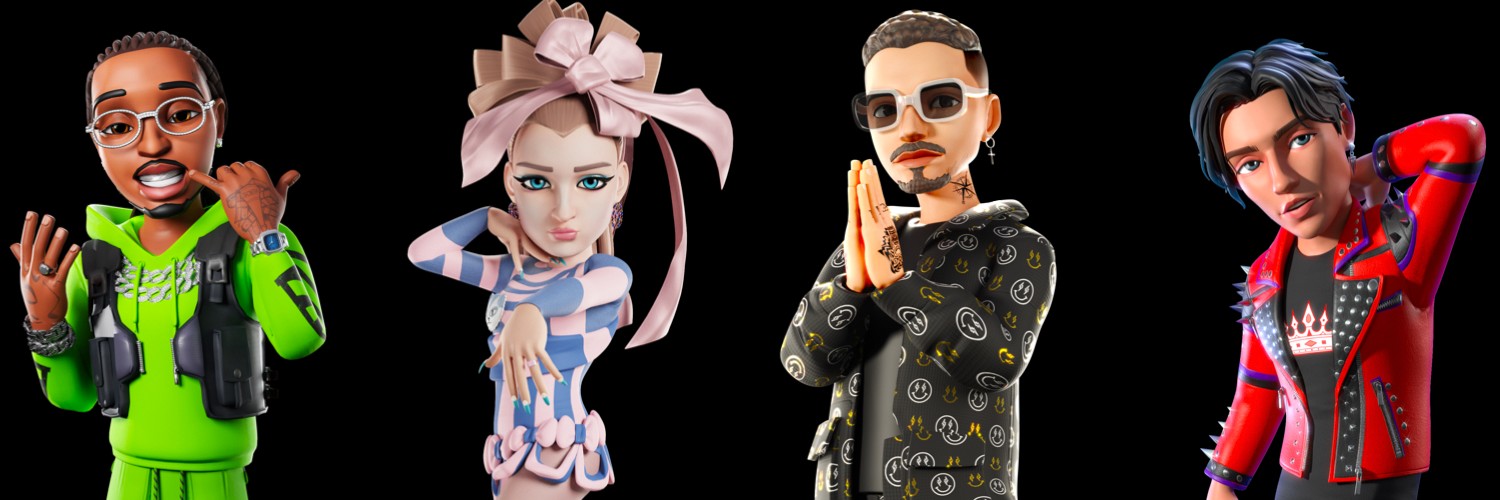Digital Flagship Stores Are on the Rise
BY: JOSE QUIROZ | MARCH 22, 2022 – 5 MIN READ
Key Takeaways (5-minute read)
- As retailers struggle with balancing brick and mortar and digital experiences, consumers are looking for unique offerings in both spheres.
- Brands can expect digital shopping experiences to evolve at a fast pace in the next few years as the metaverse and technology expand.
- Convenience can’t be the sole driver for consumer loyalty in digital retail.
- Humans crave a relationship, even with brands. This is all-important to digital retail experiences as well as in person.
The future of retail is a little uncertain as most brands move out of global pandemic protocols and are finding their way in this still-tumultuous world. Global online retailers like Amazon are dominating the market by offering convenience and the widest array of consumer goods, but how much do you really love a brand like that? You don’t form a real connection to the drop-shipping giants or truly enjoy the process of purchasing through their apps or websites. Convenience can’t be the sole driver for consumer loyalty in digital retail. Humans are experiential creatures who crave a relationship, even with companies and entities. This is more important than ever for digital brand executives who want to build their audiences and maximize revenue, and it can all come down to the customer journey as people engage in an online shopping experience. Many top-tier and luxury brands are turning to digital flagship stores to make that consumer experience unforgettable.
Wunderman Thompson Intelligence recently released its report titled The Future 100: Trends and Change to Watch in 2022, an “essential trend almanac offering a snapshot of the year ahead and the most compelling trends to keep on the radar.” Its main takeaway regarding retail states, “Digital flagship stores are taking over ecommerce storefronts.” We’ve already explored this in our recent blog “How the Metaverse Is Changing Business in 2022,” when we examined how the coming immersive digital world could and will affect brand strategy and how some big-name brands are already using metaverse technology to boost digital marketing and consumer experiences. This included Timberland, whose TimbsTrails experience places the consumer in a virtual world where sneakers, boots, and accessories are collectible items to earn as you explore, complete tasks, and play mini games. The end of the game leads to the brand’s online shop, which is a lesser version of the in-depth digital flagship stores we’ll examine next.

The Plant Room in the 1991 Apple virtual museum.
So what is a digital flagship store? You might recall Apple’s Virtual Museum, which debuted all the way back in 1991 and featured a digital space that users could navigate through to see and learn from exhibits, play games, and more. We have to hand it to the real OG here, as this Apple meta-museum might have been one of the first true digital metaverse-style experiences. Now think about that experience, but as a brand’s top retail location.
Instead of brick and mortar, it’s made of code, text, and images, and these virtual spaces are highly customized to look and feel (as much as possible) like a real-life store. Consumers shopping online can visit the store, “walk” around, and browse a brand’s offerings in this more unique, luxury-feeling experience rather than scrolling endlessly on a white page with thumbnail images and price listings.
3 Digital Shopping Experiences We Love
Let’s take a look at some of the brands who are already killing it in the digital retail market in different ways through great design, UX, availability of goods, and “cool factor.” Their increase in consumer engagement, traffic in stories and online, and brand recognition are indicative of the strength of these digital experiences for boosting ROI.
1. Ralph Lauren – A Classic Retail Experience Online

Ralph Lauren selling digital apparel for avatars on Zepeto and Roblox.
In 2020, the king of preppy, classic style adopted an AR-enabled digital-first retail strategy that saw the opening of its first digital storefronts. Forbes wrote, “It allows shoppers to virtually step into the world of Ralph Lauren’s most iconic retail spaces in New York, Beverly Hills, Paris and Hong Kong.

The virtual store will feature the newest collections, along with antique and vintage offerings, all shoppable from the comfort of home. The program has already proven success increasing foot traffic through virtual visits by over ten times, with thousands of customers visiting every day. I recently shopped at the Ralph Lauren store on Worth Avenue Palm Beach where I was informed that the store is soon to join the virtual modified path forward.”
2. Mattel – Retail Through Consumer Connection
Also in the height of the pandemic, toymaker Mattel launched the Mattel Playroom, “a free online resource which features activities and content from the company’s iconic portfolio of brands including American Girl, Barbie, Fisher-Price, Hot Wheels, Thomas & Friends, and more, along with play-from-home information and tips, for parents and caregivers to encourage kids to #KeepPlaying . . . The Mattel Playroom will be updated with additional content and experiences including designer tutorials, new ways to play with Mattel products and more.” While the Mattel Playroom is not a store, per se, it all leads back to the retailer’s offerings and really engaging the consumer with those before they make the purchase. It’s the beauty of offering more than a product, but instead a real digital experience that will keep the audience coming back, therefore keeping your brand top of mind.
3. Universal Music Group – Rocking in the Metaverse
After setting a sales record of over 115,000 copies with its digital pop-up shop featuring Logic’s new album in 2017, Universal Music Group is ready to tackle the future of online retail with avatars, NFTs, and exclusive digital offerings for consumers to enjoy in their metaverse lives while connecting to the musical artists they love. This past December, music entertainment giant Universal Music Group entered the metaverse retail game with the announcement it would partner with tech creator Genies on an expansive global partnership to develop avatars and digital wearables for UMG’s iconic artist roster, building on the company’s’ early collaborations to bring recording artists into the metaverse. “We’re not bringing culture to NFTs and crypto. Genies and UMG together are bringing the power of NFTs and crypto to culture,” said Akash Nigam, CEO of Genies. “This next era of the internet is about empowering people with more ownership and capabilities. UMG’s roster of talent represents some of the world’s most entrepreneurial pioneers, and by equipping these iconic artists with their own Genie avatars, we’re excited to help them realize even more potential in Web 3.0.”

Universal Music partners with Genies to create avatars of its singers.
No matter what your brand creates, who your audience is, or what your goals are, retailers can expect digital shopping experiences to evolve at a fast pace in the next few years as the metaverse and technology expand and more consumers look for unique experiences while shopping online. Whether you’re ready to dive headfirst into the metaverse or you’re looking to up your digital retail game with a new strategy, new virtual storefront, or new ways to connect with consumers online, Digital Caliente and our parent global brand studio, Antonio & Paris, have the solutions engagement-focused CMOs need to move into the future.

WRITTEN BY
Jose Quiroz
Short Bio — As the Managing Director of Digital Caliente, Jose Quiroz continually researches and develops exciting new ways to make connections between brands and consumers through technology. Born in Orizaba, Veracruz, Jose is a “dreamer” who began his tech career over ten years ago and is now the digital operations and digital strategy specialist for this global brand studio. Although he is a digital nomad who loves traveling, backpacking, and heading wherever his laptop may take him, he strongly holds onto his family roots and Mexican culture. When he’s not learning or teaching the latest in digital strategy, you might find Jose practicing combat sports or poring over topics such as aliens, ancient civilizations, artificial intelligence, and biotechnology.

WRITTEN BY
Jose Quiroz
Short Bio — As the Managing Director of Digital Caliente, Jose Quiroz continually researches and develops exciting new ways to make connections between brands and consumers through technology. Born in Orizaba, Veracruz, Jose is a “dreamer” who began his tech career over ten years ago and is now the digital operations and digital strategy specialist for this global brand studio. Although he is a digital nomad who loves traveling, backpacking, and heading wherever his laptop may take him, he strongly holds onto his family roots and Mexican culture. When he’s not learning or teaching the latest in digital strategy, you might find Jose practicing combat sports or poring over topics such as aliens, ancient civilizations, artificial intelligence, and biotechnology.



